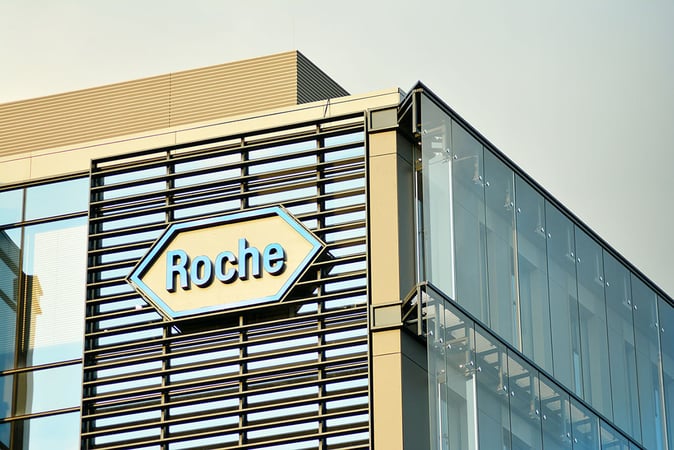As a result of the $7.1 billion transaction, Roche will get the rights to develop and distribute RVT-3101 in the US and Japan. The deal is expected to be completed at the end of this year or in the first quarter of 2024.
Swiss healthcare giant F. Hoffmann-La Roche AG, commonly known as Roche Holding AG (SWX: RO), has announced it would acquire Telavant Holdings, Inc. The latter is known as a developer of innovative drugs and therapies for patients with inflammatory and fibrotic diseases. Currently, the company is owned by Roivant Sciences Ltd (NASDAQ: ROIV) and Pfizer Inc (NYSE: PFE), at a 75% and a 25% stake accordingly.
Terms of the Roche-Telavant Deal
As a result of the $7.1 billion transaction, Roche will get the rights to develop and distribute RVT-3101 in the US and Japan. Roche will pay the purchase price upfront and make a near-term milestone payment of $150 million. At the moment, RVT-3101 is getting ready for the final testing, and Roche is committed to starting a global Phase 3 trial for the drug.
While the commercialization rights in the US and Japan will belong to Roche, Pfizer will be the only one in charge outside. Besides, once the deal is closed, Roche will also be able to enter into a global collaboration with Pfizer on developing a next-generation p40/ TL1A-directed bispecific antibody which is currently in Phase 1 of trial.
The transaction is expected to be completed at the end of this year or in the first quarter of 2024.
About RVT-3101
Televant’s RVT-3101 is a novel antibody drug created for the treatment of Crohn’s disease and ulcerative colitis. The drug is now undergoing a clinical trial and showing improved efficacy from the induction to the maintenance period of treatment with RVT-3101. The maintenance treatment phase following induction led to improved clinical remission (36% at week 56) as well as endoscopic improvement (50% at week 56) at the proposed Phase 3 dose administered subcutaneously every month.
Levi Garraway, Roche’s Chief Medical Officer and Head of Global Product Development, commented:
“The recent Phase 2b for RVT-3101 delivered the first long-term, robust dataset demonstrating improved clinical remission in the maintenance treatment phase. Given this promising data, we believe that RVT-3101 has the potential to be the first therapy that offers both high efficacy and safety for people with inflammatory bowel disease and the convenience of an at-home, subcutaneous administration.”
Roche CEO Thomas Schinecker stated:
“We strongly believe this novel TL1A-directed antibody has the transformational potential to make a significant difference for patients living with inflammatory bowel disease and potentially other diseases. We are excited to add this promising new therapy in development to our portfolio and to make it available to patients as quickly as possible.”
Inflammatory bowel diseases (IBD) are a group of chronic gastrointestinal disorders divided mainly into Crohn’s disease and ulcerative colitis. IBD occurs in genetically susceptible individuals after an exaggerated immune response to a normal stimulus, such as food and intestinal flora. The disease is affecting almost 8 million people worldwide, with an estimated 2.4 million Americans having symptoms.
Darya is a crypto enthusiast who strongly believes in the future of blockchain. Being a hospitality professional, she is interested in finding the ways blockchain can change different industries and bring our life to a different level.




